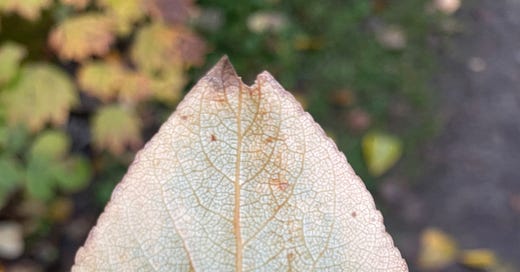When I turned 30, I could barely stay awake for more than three hours at a time. My body felt like it was unraveling. I couldn’t eat—every bite sent sharp pain through my stomach—and I lost so much weight in the course of a few weeks that I couldn’t wear any of my clothes.
I had two babies under two and was working full-time, so I told myself it was just exhaustion. Motherhood does that, right? It was easy to ignore my body’s signals, because that is what we are taught to do.
Then, on a weekend getaway to New Orleans with friends, it hit me. My partner and friends were getting dressed for a night out at 8 p.m., buzzing with excitement. I was crawling into bed. As I lay there, staring at the ceiling, a quiet fear crept in—this wasn’t normal. This wasn’t just being tired. My body was desperately trying to get my attention. Something was deeply wrong.
When I got back to Texas, where I was living at the time, I finally admitted to myself: I need help. This is more than exhaustion. This is something deeper. My vitality was slipping away, and I wasn’t willing to fade along with it.
By the grace of a good friend, I found an incredible doctor—one who listened. Really listened. She didn’t rush me, didn’t dismiss me. She asked thoughtful questions, took her time, and in our very first session, she told me: You have a textbook case of Hashimoto’s.
I didn’t even know what a thyroid was, let alone what it did. But she sat with me and explained it, step by step, like my health actually mattered. Like I actually mattered.
From there, I stepped onto the long—and, as anyone with a chronic illness knows, winding—path of healing. I joined Facebook groups and online support communities, searching for answers. And what I found was devastating.
Hundreds of women, just like me, shut out of the medical system. Dismissed by doctors. Told their exhaustion was “just stress” or that their pain was “all in their head.” Women who had gone from specialist to specialist, only to be handed another prescription or another wave of indifference.
They were turning to strangers on the internet for medical advice because no one else would help them. They were sharing lab results, desperately piecing together fragments of knowledge in an effort to make their bodies make sense to them.
I was one of the lucky ones. I found a doctor who saw me, who taught me. But most women aren’t that lucky.
It was in those chat rooms that something in me cracked wide open. This lack of care—this epidemic of dismissal—couldn’t continue. People deserve to be heard. They deserve a healthcare system that doesn’t gaslight them, that takes their pain seriously.
I knew I didn’t want to become an MD, but I had to do something.
Up to that point I had spent my career guiding people in solving complex problems and teaching them new skills. What if I could use that experience to help women—women like them, like me—not just find support, but real healing? What if I could help them rebuild their lives, reclaim their vitality, and refuse to live as shadows of themselves?
So in 2021, I took my first real step. I became a certified Wellness Coach with a focus on mindfulness and burnout recovery. That was my threshold moment—the doorway into a new world of healing. I studied Ayurveda, meditation, and emotional freedom techniques (EFT). In 2022, I took my first medicinal plant class, and everything clicked into place.
Not only could I help, I finally understood how I was meant to help.
Since then, I’ve spent every available minute training to become a clinical herbalist. I’ve studied how different medical traditions map the body. I’ve spent countless hours in the woods, hands in the soil, learning to identify, tend, and harvest medicinal plants. But the most profound shift wasn’t academic—it was something deeper, something ancient.
I tapped into a wisdom that exists beneath our feet and all around us—a reminder that we are not separate from nature, we are nature. That true healing is always within reach, whispering through the trees, growing between the cracks, waiting to be remembered.
If I could go back in time, I would find those women in the chat rooms and tell them:
There is another way.
The medicine you need to heal—not just to mask symptoms, but to truly heal—is closer than you think. Maybe even growing right outside your backdoor.
You are not crazy. Your symptoms are real. They are complex. And while a single pill may help, it isn’t the whole picture of what you can do to support your health.
You are not powerless.
In fact, the way you show up for each other—offering kindness, sharing knowledge, holding space—is the real medicine. The more we harness the strength of collective care, the more powerful we become.
And that power?
It changes everything.




